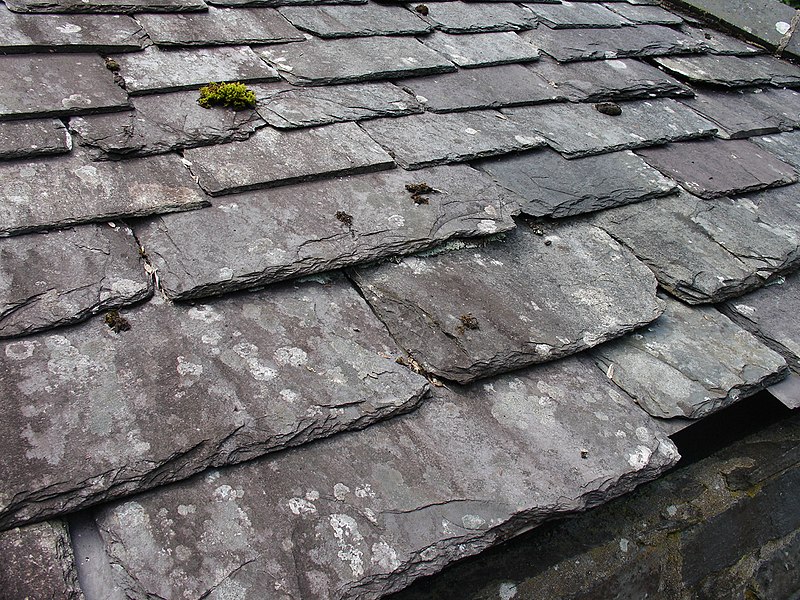.

that slipped
from the roof
someone
had written
a poem
The gutter's lined with diamonds
the birds sip them


from Reverdy en Amérique: John Ashbery, Mercure de France Numéro 1181, Janvier 1962:
Dans The Waste Land d'Eliot, le monde réel apparâit avec les rêves qui lui sont propre, mais il est toujours artificiellement lié à une signification allegorique--l'usine à gaz et le <
J'ai toujours regretté que les rhythmes sombres d'Eliot et de Yeats, par exemple, soient a la service d'une signification précise, et que leurs élans poétiques--différents, en cela, du faucon de Yeats--soient comme un cerf-volant dont le fil est fermement tenu par le poète rivé à sa terre. Ce qui nous enchante chez Reverdy, c'est la pureté de sa poésie, faite de changements, fluctuations, archetypes d'evénements, situations idéales, mouvements de formes transparentes, aussi naturels et variés que les vagues de la mer, C'est l'étoffe même de la poésie, sa matière pure de toute arrière-pensée métaphysique.

Toujours l'Autre:
The voice of Pierre Reverdy @ 2.34
It's my lunch hour, so I go
for a walk among the hum-colored
cabs. First, down the sidewalk
where laborers feed their dirty
glistening torsos sandwiches
and Coca-Cola, with yellow helmets on. They protect them from falling
on. They protect them from falling
bricks, I guess. Then onto the
avenue where skirts are flipping
above heels and blow up over
grates. The sun is hot, but the
cabs stir up the air. I look
at bargains in wristwatches. There
are cats playing in sawdust.
On
to Times Square, where the sign
blows smoke over my head, and higher
the waterfall pours lightly. A
Negro stands in a doorway with a
toothpick, languorously agitating
A blonde chorus girl clicks: he
smiles and rubs his chin. Everything
suddenly honks: it is 12:40 of
a Thursday.
Neon in daylight is a
great pleasure, as Edwin Denby would
write, as are light bulbs in daylight.
I stop for a cheeseburger at JULIET'S
CORNER. Giulietta Masina, wife of
Federico Fellini, bell' attrice.
And chocolate malted. A lady in
foxes on such a day puts her poodle
in a cab.
There are several Puerto
Ricans on the avenue today, which
makes it beautiful and warm. First
Bunny died, then John Latouche,
then Jackson Pollock. But is the
earth as full of life was full, of them?
And one has eaten and one walks,
past the magazines with nudes
and the posters for BULLFIGHT and
the Manhattan Storage Warehouse,
which they'll soon tear down. I
used to think they had the Armory
Show there.
and back to work. My heart is in my
pocket, it is Poems by Pierre Reverdy.

"Sur chaque ardoise...": from Pierre Reverdy: Les Ardoises du Toit (1918), trans. TC
A piece of slate: photo by Jon Zander, 2007
Slate roof, Tannery, St. Fagans (Wales National Museum, Cardiff): photo by Zureks, 2007
Reverdy portrait photos from Famous poets and poems and La Periodica Revisión Dominical
Frank O'Hara: photo from The poets' page
Windows: Egon Schiele, 1914 (Österreichische Galerie, Wien)
11 comments:
Nice little Reverdy homage/juxtapositions Tom. Was he an influence on you at all?
So that spate of slates a woolgathering roofer (perhaps) had covered with poems is not susceptible of an allegorical interpretation? I mean, the slates may not be representations of the four cardinal virtues or anything, but do they suggest escaping quotidian blue-collar drudgery by taking refuge in the imagination? Sort of like the drunken sailor dreaming of catching tigers in red weather? Perhaps not... but a cheeseburger at Juliet's means nothing but a cheeseburger at Juliet's, of that I'm sure
and surely we shall not continue to be unhappy/
we shall be happy/
but we shall continue to be ourselves everything continues to be possible/
René Char, Pierre Reverdy, Samuel Beckett it is possible isn't it/
I love Reverdy for saying yes, though I don't believe it
(from "Adieu to Norman, Bon Jour to Joan and Jean-Paul," F O'H)
"aussi naturels et variés que les vagues de la mer" or as JB would say (or sing) "like the motion of the ocean." Reviewing Rexroth's intro/essay to his PR translations which I realize I must have come across nearly 40 years ago, he credits PR's influence on his own work as well as that of Creeley and Snyder(?). FOH and JA's example opened up the possibilities for a whole new generation. It could happen again.
Pat,
Love your eternal recurrence theory. Let us please wake up tomorrow in 1926.
Vincent,
"It could happen again"/"everything continues to be possible"...I think we may be on the brink of a major mood swing here, let's hope so anyway. (Then again, just for a bit of balance to the delirious Yes, the more Reverdy-esque sombre "I don't believe it".)
David,
Good point. I knew JA couldn't sneak that one by so easily. Of course we know that the meanings of ardoise include:
1. A fine-grained metamorphic rock that splits into thin, smooth-surfaced layers.
2.(a) A piece of this rock cut for use as roofing or surfacing material or as a writing surface.
(b) A writing tablet made of a similar material.
3. A record of past performance or activity: start over with a clean slate.
4. A list of the candidates of a political party running for various offices.
5. A dark or bluish gray to dark bluish or dark purplish gray.
And of course PR is playing on both 2 (a) and 2 (b).
Michael,
Yes, he was a strong influence. Here's an early specimen:
Doors
And later, through some more complicated filters and baffles:
Adversario
___________
(By the by, that mysterious wee link I've posted in the piece to "The voice of Pierre Reverdy" is legit--jump to the 2:34 mark and hear him say a few words, sampled in the mix of this French pop song.)
I always wondered why Frank ended with "though I don't believe it" or — more to the point — what precisely is he referring to at that moment? I guess the ambiguity is what gives the ending perfect ping.
Sounds to me as though the poet were trying sincerely to talk himself into having a better attitude about the ups and downs of life... and it's not quite working. For me that reversal to realism is the ping.
Dear Tom,
Yes to Reversal of, or to, Realism! Ping = Frank’s Shanghai sweetie (in the frozen strawberries, doncha know). One oddment in that mix is that it’s Prevert (in Paroles, which had just come out from City Lights) who says the only thing to do is to continue; I’ve never found it in Reverdy — of course, it’s in Beckett’s “I’ll go on” and about Char, who knows? -- but I think Frank deliberately pulled a “stout-Cortez” number in that instance, Reverdy anyway being much more to the point. The reversal/ping — you pull the pretty ping out of the chignon, didn’t he say, about hand grenades? -- is typical of Frank in those years, as in at the end of “Image of the Buddha Preaching” about “hopeful of a new delay in terror” he slides it home “I don’t think.” The other reversal is to turn at the end of an otherwise depressed or angry poem to a sudden love interest, “you,” which then brings the poem into focus (c.f. Personism) and delivers either a sharply pointed direct address or, can it be?, an otherwise impossible smooth landing.
I wonder why Frank’s Reverdy translations aren’t circulated. I am in no position to know whether they’re accurate or not, but the one with the line “It’s today that I love you” has always gotten to me.
What is realism?
Cheers,
Bill
Ditto JA's early writings (in French) on poetry, i.e. why aren't they circulated...?
Tom -- why not 2026 (or 2666)? Problem with 1926: no internet, no blog. The appreciation of that sensibility is still current, though. Evident in the response.
Vincent,
Yes, one would die to glom one's peepers upon further samples of those French Ashes.
Indeed I almost died of hunt-and-pecking into the post the present paragraphs of JA's elegant French prose. 'Twas all those keyboard thingies; why must French be so... what's the word? Slanted? Bent? Circumflexed?
Bill,
The "stout-Cortez" gambeta: going on nerve even when you're running on empty. Lovely history.
"'It’s today that I love you' has always gotten to me." Ping!
You great largehearted Romantics are all alike... Pierre might blush. Coco, probably not.
"What is realism?"
And you know, and you know.
Or as some hermit put it:
The world of dew
is the world of dew.
And yet, and yet...
Pat,
Interesting pause for thought.
I guess I'd say the second temple was not like the first, in any case.
Let us admit that in reconstructing those ruins we are elders speaking from doubtless flawed human memory, but at least human memory, however flawed, is not a technology.
In 2026 or 2666 who will remember, if anything, what?
We try our best to remember right now, in this moment. And if not now, when.
The recursiveness of these investigations while unavoidable still can't help carrying an element of melancholy, a haunted feeling as of Ghost Presences Around Us
Post a Comment